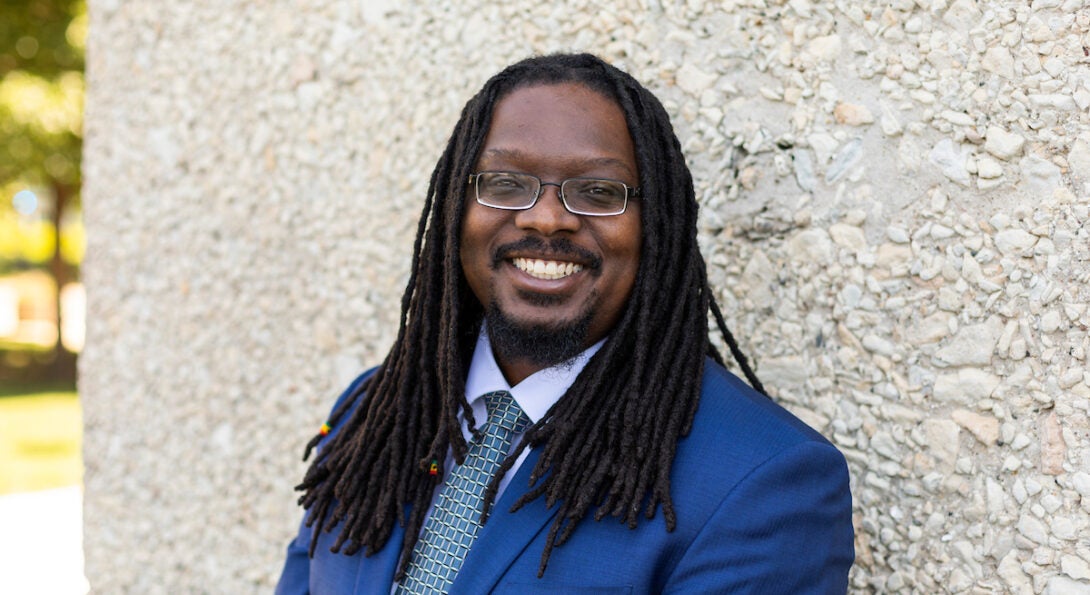Combining science, community, and cybersecurity | Interview with our Director of IT

Interview with Anthony Briscoe
Name: Anthony Briscoe
Title: Executive Director
Department: LAS IT
What is the role of an IT Director?
The role of an IT Director varies per organization. Overall, my role as Executive Director of IT is to align all technology efforts to the mission, vision, value statements of the College of Liberal Arts and Sciences. This includes the management of people and processes and establishing policies, procedures, and guidelines that align with the university’s mission as a leading research institute.
What inspired you to work in IT?
I love people. Technology is the field that has allowed me to connect with people all around the globe. It’s a field that continually evolves. As human beings continue to evolve, I get to be a part of a multiverse of evolutionary shifting that will hopefully expand humanity and technology into a more ethical and unified landscape.
I’ve noticed your recent interest in cybersecurity on LinkedIn – can you talk a bit about this?
I started my journey in the Cybersecurity field at the height of the pandemic. We reach a point where our careers don’t seem to be progressing. That’s where I was when I learned about this field. Surprisingly, I was already doing the work, but I wasn’t aware of its depth. Most of my work in cybersecurity is mentoring, advocating, and professional development. Here at UIC, I get to shape the future of cybersecurity for LAS by collaborating with our Central IT (TS) and working with the Director of Information Security to increase operational effectiveness surrounding the confidentiality, integrity, and availability of our systems.
What role does research and furthering your own education play in your career?
I am constantly learning. Coming from a K-12 background working for one of the largest charter school networks in the country, there was an expectation for IT to remain resourceful with technology, applications, software programs for Ed Tech, safety, and security. Having to stay on top of trends means consistent learning, research, networking, conferences, and webinars. I’m taking an online course right now; I’m reading books on leadership development. What’s next? Maybe MBA or MIS, we shall see.
Advice for students hoping to pursue a degree in IT or cybersecurity?
For students hoping to pursue a degree in IT or cybersecurity I recommend the following:
- Learn your purpose as you develop and matriculate through college
- Learning the fundamentals and gaining a thorough understanding of the OSI Model
- It will take time to develop your niche, give yourself grace
- Find a mentor. Do not underestimate the power of community
What interests you about Liberal Arts and Sciences?
Liberal Arts and Sciences evolves around understanding humanity and its relationship with science. I love people. Meeting people, like Dr. Eaton and her philosophical approaches to life and knowledge, meeting Dr. El-Amin and the work she does with and for students and her community, and taking a tour with Professor Luke Hanley and seeing a device that he built over 20 years all for the betterment of medical technology is inspiring. It’s at the heart of all we do at the University. Anthropology teaches us humanity, sociology teaches us engagement, psychology teaches us identification of self and others. When we learn we were not created better than others and master we were only created differently, I believe it will open the understanding and help us all be more human, loving, and humane.
Why did you choose to come to UIC and LAS specifically?
I wanted to stay in the nonprofit sector. I want to continually be able to interact and engage students. Working for Noble for 13.5 years, you can’t just walk away from giving back. Here at UIC, I get to continue working for those same Noble students who attend the university. It was a unique opportunity for me to increase my leadership skills and continue my educational journey. My impact on students in my short six months at UIC has led to job opportunities, networking, and continued professional development for student workers.